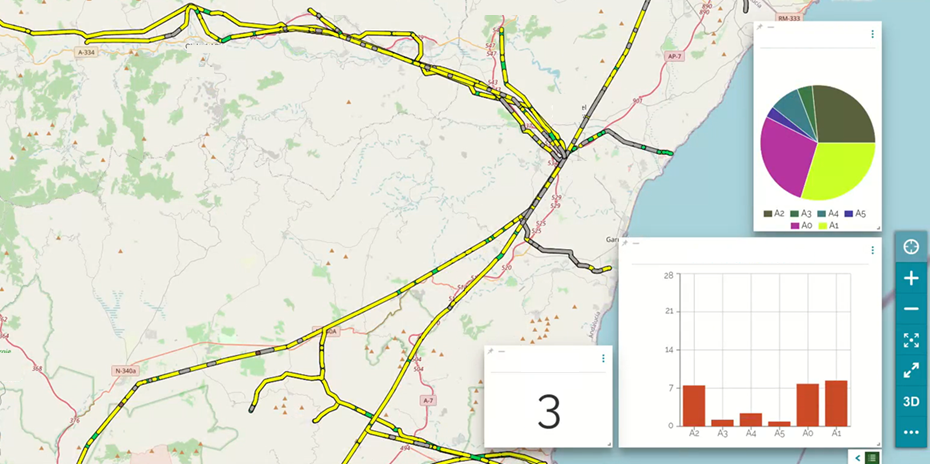
Climate change is a global issue that transversally affects the whole planet. Its impacts can be seen across the world, causing natural disasters, rising seas, and sometimes even reshaping habitats. As a part of this phenomenon, extreme climatic events are becoming more severe and frequent, affecting more and more infrastructures and services of the cities, such as transport, energy, or water distribution. Several infrastructure systems are considered critical since they are essential to ensure a given region’s security, economy, public health, or safety. One of these sectors is the power systems, which are becoming more and more vulnerable to climatic phenomena.
Along that line, diverse European projects are working on planning, reducing, and adapting to the impact of the extreme events driven by climate change. In the framework of the LOCALISED Project, this is approached from the point of view of decarbonization, seeking as a solution the net zero energy transition as adaptation and mitigation. The analysis goes down to a regional level (or NUT 3), where the most appropriate measures and instruments are sought for each region, taking into account the climate impacts that can affect the power system on the one hand and considering the feasibility of implementing measures at the territorial level available on the other.
As another example, one of LOCALISED’s partners, IREC (Catalonia Energy Research Institute), is also working on another project named ICARIA, which also assesses the electrical network risks due to climate change. The focus of the project is understanding how the impacts on the electricity sector can affect assets in other infrastructures. For instance, efforts are made to calculate the direct and indirect damages that a vital asset in the water sector, such as a treatment plant, may incur due to damages suffered by one of the elements of the electrical network as a result of an extreme weather event, such as a strong wind. To this end, ICARIA is more granular, reaching down to the consumer level. In this context, ICARIA focuses its studies on three specific territories for validation, while in LOCALISED, the study ranges across the European Union.
In summary, regardless of where we put the focus on the results of the power system’s risk assessment, the impacts received from climate change will continue to occur. Such assessments are essential to identify risks but are also required at distinct levels depending on the perspective. Projects such as LOCALISED and ICARIA are necessary to analyze the different aspects involved in these phenomena and aid us in comprehending, anticipating, and strategizing for the tangible effects of climate change, thus strengthening the resilience of the power system.

Recent Comments